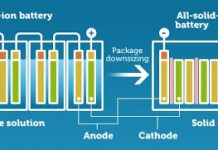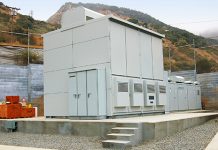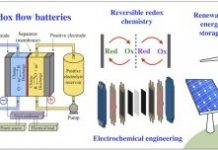by Debra Fiakas CFA
A small Israeli battery developer, Phinergy, is getting attention in the press for a road test of a Citreon C1 car outfitted with Phinergy’s metal-air batteries. Confined mostly to military applications, metal-air batteries have not gained as much attention as lithium-ion applications. Indeed, the Citreon is principally powered by a lithium-ion power package that has been installed in the trunk. Phinergy’s metal-air batteries are to be used as a range extender.
Long-use is really the metal-air battery’s main attraction. Like regular batteries Phinergy’s metal-air battery has an anode. It is made from aluminum plates. However, here is where convention ends. In conventional batteries, there is a cathode container of electrolytic material that supplies the oxygen needed for the electro-chemical process. Phinergy’s cathode is decidedly unconventional, because it just taps the ambient air for the oxygen molecules.
Phinergy’s calls it an “air cathode.” It is a porous structure that can absorb oxygen and reduce it into the electrolyte. This capacity yields one of the metal-air battery’s most significant feature – low weight. That is a key attraction for transportation solutions where every ounce of weight must be justified.
 Energy density of Zinc-Air batteries vs. conventional batteries. Image source: NASA |
It is no surprise that the Phinergy battery was installed on the Citreon to extend range. Aluminum is an energy dense metal, which in turn gives Phinergy’s metal-air a second major advantage – long range use. Phinergy has suggested its battery could add 1,000 miles to the trip in that Citreon C1! That is significant since many lithium ion batteries have a range of 100 to 200 miles.
Unfortunately, metal-air batteries have some shortcomings. The aluminum metal anode component entails some cost, especially since the metal is consumed in the electrochemical process and must be replaced. Phinergy has made some progress in recharging its zinc-air batteries from the electric grid.
The only hint the company provides on its financial situation is the acknowledgement of government support for its battery development projects. Phinergy is a private company so likely the only way for an investor to get involved is through a private placement.
For the rest of use, an investment in metal-air battery technology is confined to couples of public companies that have ventured into the field. Rayovac offers zinc-air batteries to the U.S. military for specific applications. Rayovac is owned by consumer brand manager Spectrum Brands Holdings (SPB: NYSE). Spectrum is a ‘small’ mid-cap stock that is trading at an intimidating multiple of 138 times trailing earnings. This is because Spectrum has just returned to profitability after a series of net losses. On a forward basis the stock is trading at 14.4 times the consensus estimate. No matter how much the U.S. military might like the Rayovac metal-air batteries this stock is far removed from metal-air battery development.
A stake in Arotech Corporation (ARTX: Nasdaq) is much closer to batteries and even metal-air batteries. Arotech tested a zinc-air battery in a hybrid vehicle in 2004, but progress has been limited. Instead Arotech has concentrated on military applications for its rechargeable zinc-air battery technology. The company sells the Soldier Wearable Integrated Power Equipment System (SWIPES) to the U.S. military. Combined, its lithium battery and zinc-air batteries and systems account for approximately one-fourth of total sales. Arotech reported $80.1 million in total sales in 2012 compared to $62.1 million the year before.
Arotech is largely unnoticed by investors, probably because it has yet to achieve profitability. The company occasionally produces positive cash flow from operations and so has staved off insolvency. There was $1.5 million in Arotech’s bank account at the end of December 2012. Consequently, ARTX trades a paltry 200,000 shares per day. Then again, that shallow trading volume could be a blessing as it may be limiting stock price volatility. ARTX beta measure is 1.00.
Metal-air batteries are now on my list of technologies to watch. Phinergy and Arotech have both been added to our Mothers of Invention index of innovators of energy technology.
Debra Fiakas is the Managing Director of Crystal Equity Research, an alternative research resource on small capitalization companies in selected industries.
Neither the author of the Small Cap Strategist web log, Crystal Equity Research nor its affiliates have a beneficial interest in the companies mentioned herein.








